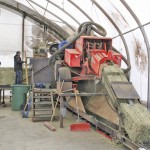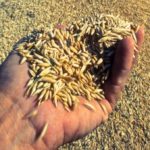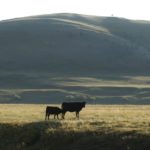
Tag Archives Western Canada

Optimism for Canada to plant 100K acres to sunflowers

Develop a pasture plan based on specific needs and weeds
Heavy seeding and a weed control strategy geared to specific pasture conditions are key for grazing consultant and rancher Graeme Finn

Railways fined for failing to move enough grain
Farmers and grain companies say the fines are too small relative to the cost of delivery delays

CN Rail over, CP under 2013-14 Maximum Revenue Entitlement
The railways moved 38.76 million tonnes of western grain to export ports — the most ever since 2000-01

Should farmers pay for protection against grain company defaults?
The Canadian Grain Commission has proposed setting up a security fund paid for by grain companies, but Rob Brunel says Ontario’s farmer-funded model has merit

The CGC is still on guard for thee
Canada's grain quality system has not been compromised post-wheat board or by the changes at the grain commission, the CGC's chief commissioner says

CFGA makes the case for more publicly funded forage research
The association also has a plan for performance testing new varieties and restoring lost inoculants

Oats prices drop to two-and-a-half-year lows

Klassen: Strong demand at feature calf sales



